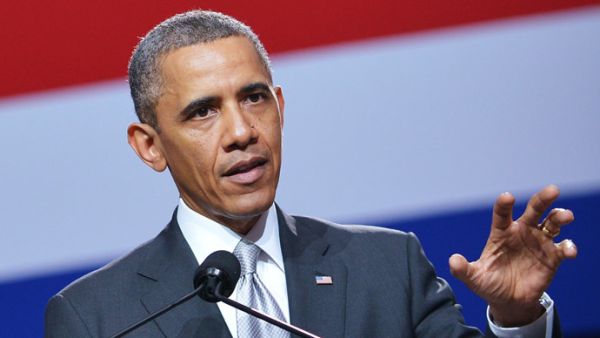US President Barack Obama has called on the new Republican-controlled Congress not to impose more sanctions on Iran over its nuclear program, saying he will veto any such move.
At a joint press conference with British Prime Minister David Cameron in the White House in Washington on Friday, Obama warned Congress not to try to torpedo the ongoing nuclear talks with Tehran.
“Additional sanctions on Iran at this time would undermine international unity and set back our chances for a diplomatic solution,” the US president said.
“I'm asking Congress to hold off because our negotiators, our partners, those most intimately involved in this assess that it would jeopardize” the chances of a deal, Obama said. “There is no good argument for us to try to undercut, undermine the negotiations until they've played themselves out.”
Republican lawmakers have threatened to bring an anti-Iran bill to the floor of the US Congress, if the ongoing nuclear talks with Tehran fail.
Republicans in the Senate plan to vote on the bipartisan bill well before Obama's team finishes the current round of international nuclear negotiations.
Bob Corker, the chairman of the Senate Foreign Relations Committee, said on Thursday that the Senate will start debate within weeks on whether to impose new sanctions against Iran, despite warnings from the Obama administration that they risked derailing nuclear talks.
The US president said on Friday that new sanctions would "jeopardize the possibility of... providing a diplomatic solution to one of the most difficult and long-lasting national security problems that we've faced in a very long time.”
"We'll see how persuasive I am. But if I'm not persuading Congress, I promise you, I'm going to be taking my case to the American people on this," he warned.
British Prime Minister Cameron also opposed any new sanctions against Iran, arguing the world needed to “create the space for negotiations to succeed.”
He added that additional sanctions “would be counterproductive and put at risk the valuable international unity.”
Iran and the P5+1 - the US, France, Britain, Russia, China and Germany - are holding negotiations to work out a final deal aimed at ending the longstanding standoff over the Islamic Republic’s nuclear energy program.
On Friday, Iranian Foreign Minister Mohammad Javad Zarif and his French and American counterparts held talks in Paris to help speed up the nuclear negotiations between Iran and the P5+1 group.
Two days earlier, US Secretary of State John Kerry and Zarif held three rounds of intense negotiations in Geneva.
Tehran and its negotiating partners are set to begin a fresh round of nuclear talks in Geneva on January 18.
Iran and the six powers wrapped up their latest round of nuclear talks in Geneva on December 17, 2014, three weeks after they failed to reach a final agreement by a November 24 deadline despite making some progress.
The two sides agreed to extend their discussions for seven more months until July 1, 2015.
The scale of Iran’s uranium enrichment and the timetable for the lifting of anti-Iran sanctions are seen as major sticking points in the talks.








